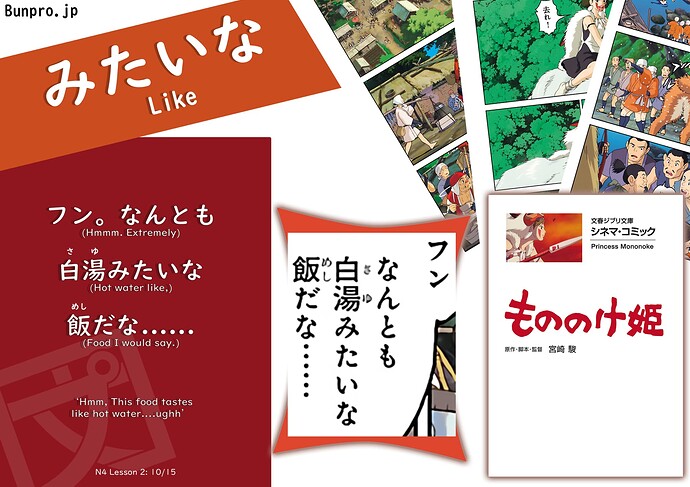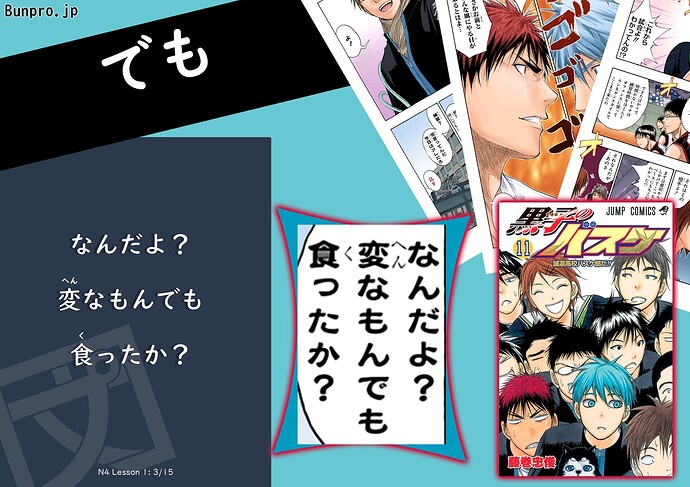translation
Huh. This boiling water is really like a meal…
boiling water and food seem don’t seem to be like each other, so I’m not really sure about this
review
Upon using some machine translation and looking around some more I believe it’s stating that talking about a soup like meal where all you can taste is the hot water.
My mistake in translating was getting the relationship backwards. AみたいなB is stating that B is like A, not that A is like B.


 )It’s either a male term 飯, a children’s term 飯 or an archaism飯 on itself. Some fun vocab with it too ^^
)It’s either a male term 飯, a children’s term 飯 or an archaism飯 on itself. Some fun vocab with it too ^^

